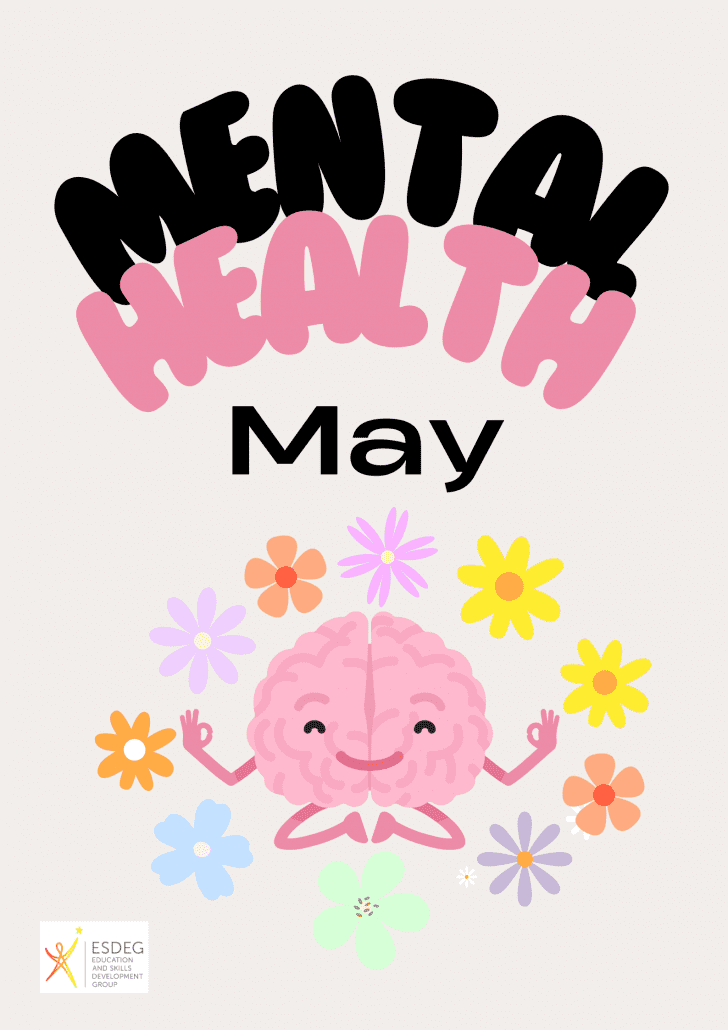Suchismita Majumdar, Research & Policy Officer ESDEG
As we celebrate mental health awareness in May we would like to talk about the perceptions and attitudes on mental health. ESDEG works with the marginalised global majority migrant communities from low-income households in West London. Due to lack of exposure and low awareness these communities’ often have rather problematic view bordering on the negative to mental health. Mental disorders are either trivialised or distorted or oversimplified or taking it to another extreme linked with violent and criminal behaviour. There is stigma, shaming and discrimination around mental health issues and those suffering from it. Fear of social exclusion often make individuals specially women mask their issues from the community and their neighbours, similarly families often undermine or disregard or deny symptoms if their children have any.
According to the website Very Well Mind — “Masking refers to when an individual hides or suppresses symptoms, behaviors, or difficulties they are experiencing. While it can happen intentionally, it often occurs unconsciously over time as an individual receives negative feedback for their authentic presentation.”
Ned Carter, Programme Manager at CBM defines stigma in his blog ‘Changing lives by reducing mental health stigma and discrimination’. In Ned’s words ‘Stigma could be described as disapproval of someone perceived as “unacceptably different” and distinguished with a mark of social disgrace. People are left feeling shame, guilt and worthlessness, and stigma can cause or exacerbate mental health conditions…That’s not all. Stigma leading to discriminatory actions can have severe consequences: worse educational outcomes, reduced or denied access to health and social services, exclusion from family and community activities, lower employment and job loss, violence and abuse, poverty, and reduced quality of life.’
British mental health charity Mind in their report titled ‘Race and Mental Health’ have found that “one in four black, Asian or minority ethnic (BAME) people who have struggled with their mental health keep their issues to themselves, believing they don’t know anyone that would understand”. The report further goes on to share that “50% don’t speak about mental health as they don’t want to burden someone with their mental health issues” as reported on Bipolar UK website.
This often results in individuals shying away from seeking help which results in disorders not getting diagnosed and getting treated. People are hesitant to seek therapy even when they find it difficult to cope on their own. This has a direct negative impact on the life and wellbeing of not only those needing help, but also their families and near and dear ones.
As a grassroots charity working with members of the global majority migrants and low-income households, we saw the immense need in the community for additional support specially since waiting lists in the NHS can stretch up to a year. The other feedback we got was that people often felt hesitant approaching the health services for support since they felt that their religious or cultural background will not be understood. So, from early 2022 ESDEG started offering mental health counselling for free to our service users. We work with an Integrative Therapist who is a Somali herself and offers counselling both in English and Somali. In the initial months we saw a lot of hesitancy in availing the service. So, our therapist started hosting wellbeing talks at the coffee mornings which we organise for mothers whose children have special needs. She also started to organise art therapy sessions for children during the school holidays. The response from both these initiatives have been really encouraging. More and more parents are approaching our therapist for help.
As an organisation we make it our aim to break the stigma around mental health. From our experience we feel the flowing measures can help reduce the stigma against mental health, break the silence and make people talk about it without fear of social isolation.

Suggested Solutions to Break Social Stigma
- Encourage families not to delay seeking help for themselves or their children;
- Raise awareness on mental health issues at the community level;
- Involve community members as stakeholders in increasing awareness and understanding of mental health. This will result in culturally sensitive explanations which would be easily accessible by the larger community;
- Better explanation and more information on mental health. Even individuals who are fluent in the English language have problems understanding the terminology;
- Provide support to individuals to understand, access, and engage with health, education, and social care services, particularly those providing support for mental health;
- Set up systems for early diagnosis and intervention which will help in reducing stigma, improve development trajectory and outcomes;
- Foster effective partnership through good communication between individuals and health staff, other key workers, and organisations working on the issue;
- Issue and culture-specific sensitisation drive for health, education, and social care workers.
If you want to avail the services of ESDEG’s Integrative Therapist please drop an email to admin@esdeg.org.uk.

